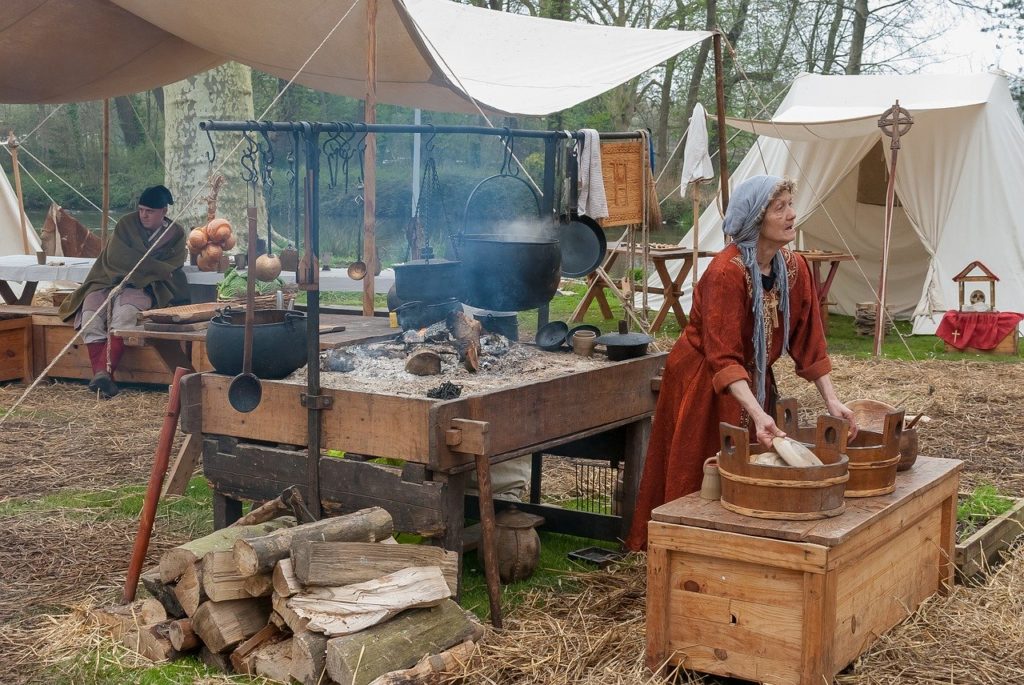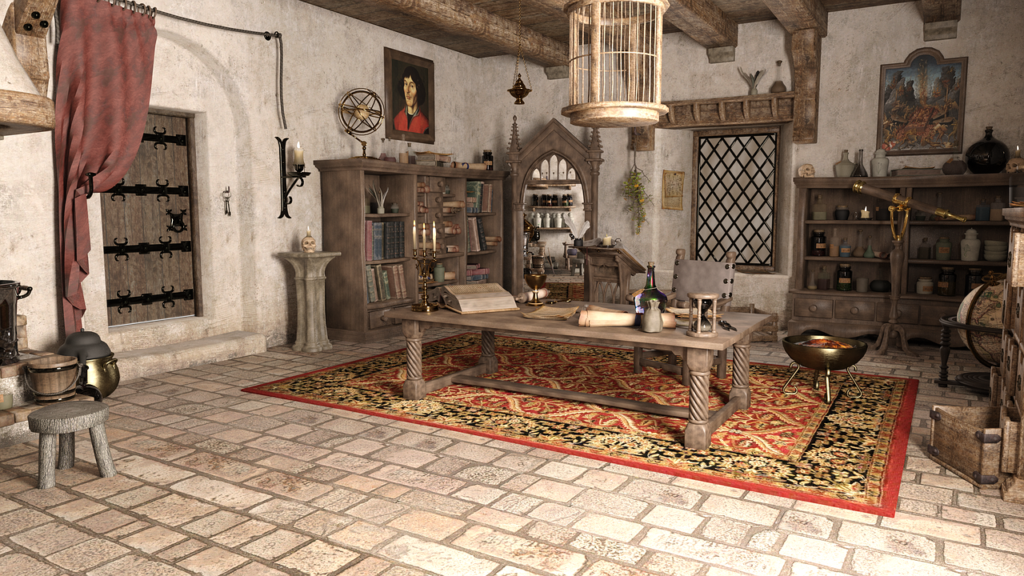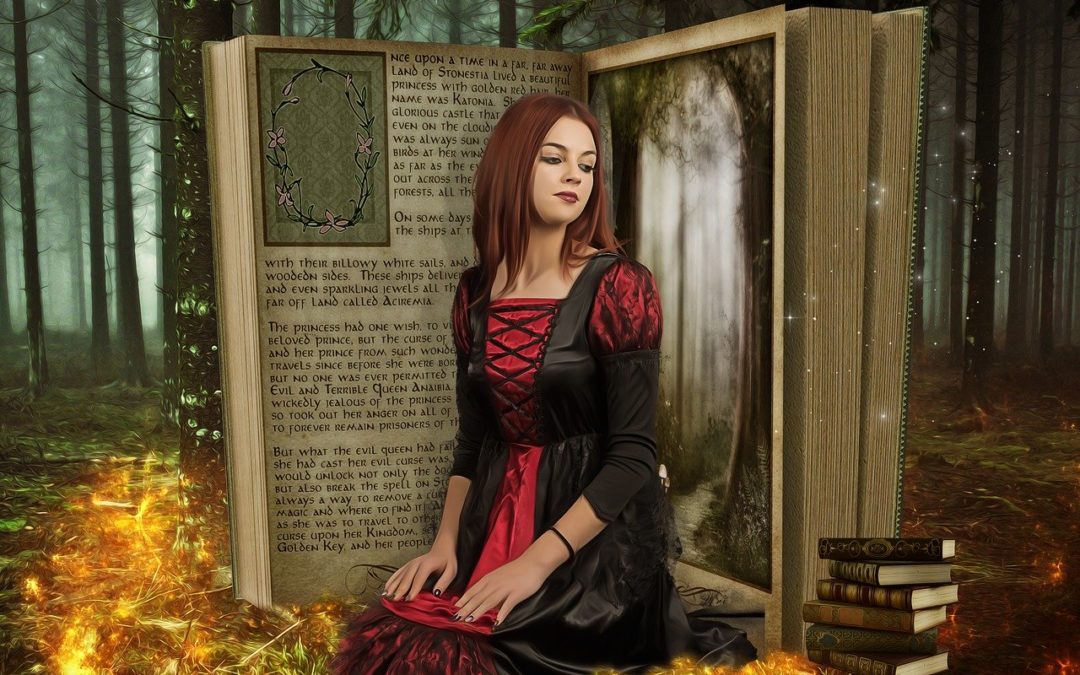5 Unexpected Virtues of Role-Playing
Want to spice up the writing room? As writers, we all do pretty much the same things—we read the Elements of Style, brush up on our hero’s journey, try to write every day, and of course, unlock the mysteries of story structure. But have you ever considered setting aside the Chicago Manual of Style and picking up instead the Dungeons & Dragons Core Rulebook?
I know, I know. Our sophisticated writer persona cringes at the thought of teenagers circling a table and talking about half-elves, hit points, and spellcasting. But I can’t stress it enough: role-playing made me a better writer. Period.

Not all role-playing games are fantasy adventures. There is almost certainly a gaming module that matches your preferred genre: science fiction, historical fiction, crime & mystery, Gothic horror, chick lit, spy games, 1980’s urban fantasy…you name it. Role-playing games have evolved to suit every taste and demographic.
Let’s explore five unexpected virtues of role-playing and how they animate the craft of writing in critical ways.
#1 – Diversity of Perspective
If you’ve ever hosted a role-playing game as the revered ‘Dungeon Master,’ you’ll discover that while player characters focus on a single character, you must play all the other roles in the world. That means role-playing people with different genders, personalities, occupations, socio-economic classes, cultures, authority levels, and temperaments. For example, by simply role-playing many women over the years, I experienced the full range of bizarre behavior men exhibit when courting a lady. Unexpectedly, I found myself adjusting my own behavior around women, but more importantly, I also learned to write better female characters. By role-playing so many diverse characters, a writer becomes acutely aware of viewpoints and perspectives that vary greatly from our own.

#2 – Character Development
When you role-play a character that you designed, you naturally take a liking to them. You consider all manner of details regarding their appearance, languages, personality, backstories, gear, and skillsets. To make a character not only capable in their world, but you must also understand their place in the world. This will help writers better understand the relationship every character has with their culture as well as with other people. By building a character and experiencing progress, your inner writer is sharpening crucial skills for great character development. You also develop a natural sense that all action leads to growth. Otherwise, the action loses its meaning.

#3 Improvisation
Once you get over the initial embarrassment of “acting” in front of your friends or even strangers, role-playing delivers real power. Situations change minute by minute. Player characters are all interacting in real-time, and you have to keep up. Witty lines of dialogue or dramatic moments crop up organically. This type of free-flow storytelling and character interaction builds up your writing muscles better than almost any other skill. Your scenes gain that coveted touch of spontaneity that great writing requires. Your imagination auto-populates dialogue, body language, emotion, and interactions at a rapid pace. Scenes flow with authentic precision because the improvisation of role-playing caters toward free-flow experiences inherent to writing.

#4 Conflict
One of the most cryptic aspects of writing is conflict. It takes writers years to learn how to build tension or establish conflict in each chapter. I used to think storytelling was a matter of a logical and, therefore, believable sequence of events. Try being a Dungeon Master. You learn to play off the independent actions of the players while introducing dangers, obstacles, rewards, or incentives and at every turn. Being a good Dungeon Master means keeping player characters engaged, off-balance, misdirected and entertained—exactly what writers must do. Crafting great chapters is akin to hosting a great couple of hours of live gameplay.

#5 Settings
Writers love settings. But only role-playing taught me the real importance of a setting. In a role-playing game, every environment becomes a chessboard for the player characters. I learned never to underestimate the ingenuity of players when it comes to solving problems. Every object and prop, every window and door, every light source and shadow will come into play. More than merely some “backdrop” for characters, a setting reveals a ton about the story, the culture, the values, and the daily mode of operation in your story world. Each setting has a purpose and function in the world, and likewise, each setting brings its own dangers and delights. Role-playing forces you understand the interdependence a setting has on the characters and the story.

Conclusion
These five aspects are just a handful of the benefits writers gain when engaged in role-playing games. Try it out. If you’re a writer, consider hosting an adventure with creative friends or even your kids. Just talking about the genre and setting builds tremendous anticipation and excitement about playing. Choose a compelling world or era. Order a pizza, play music to fit each scene, use pictures, bring props. Whatever brings an imagined world to life will only feed that inner writer in ways that more conventional methods can’t touch. Never forget that play is at the very center of a creative soul.

Douglas A. Burton is a historical fiction author who believes in the transformative power of storytelling. His novel, ‘Far Away Bird,’ which follows the early life of Byzantine Empress Theodora, won multiple awards and garnered critical acclaim. See more at douglasaburton.com.
